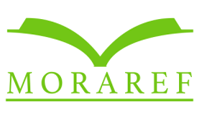STRATEGI PENINGKATAN KETAHANAN EKONOMI PEREMPUAN KEPALA KELUARGA MASA PEMULIHAN EKONOMI (STUDI KASUS SERIKAT PEKKA ASAHAN)
 Abstract views: 270
,
Abstract views: 270
,
 PDF downloads: 351
PDF downloads: 351
Abstract
The purpose of this study was to obtain alternative strategies for family economic resilience in the PEKKA Asahan union, and reviewed with maqashid sharia. The method in this study used a qualitative approach with SWOT analysis and QSPM analysis. This study used questionnaires and interviews with 10 respondents divided into 5 SWOT respondents and 5 QSPM respondents. Based on the results of the IFE and EFE calculations, the position for the SWOT analysis can be determined, namely in quadrant I (positive - Positive), namely Aggressive Strategy. An aggressive strategy is a strategy that utilizes the internal strengths of the PEKKA Asahan Regency economic resilience program to seize existing external opportunities. This strategy is also known as the SO (Strengths-Opportunities) strategy. The QSPM matrix is generated from the SWOT matrix contained in the SO strategy. Alternative strategies that are sorted from the highest total attractiveness value are the PEKKA Asahan union business group can utilize digital technology in product marketing, utilize the PEKKA union network to help create wider market potential opportunities, increase collaboration with international organizations and the government to support activities to increase family economic resilience and access to business capital. The role of women as heads of families has a very important contribution in increasing the economic resilience of families and is in line with the principles of maqashid sharia which include five main objectives, namely maintaining religion (hifdz al-din), reason (hifdz al-aql), soul (hifdz al-nafs), descendants (hifdz al-nasl), and property (hifdz al-mal).
Downloads
References
Febriyani, Chodijah. “Pekka Mart, Program Pulihkan Ekonomi Masyarakat Khusus Perempuan Yang Terdampak Pandemi.” industrycoid, 2021. https://www.industry.co.id/read/90382/pekka-mart-program-pulihkan-ekonomi-masyarakat-khusus-perempuan-yang-terdampak-pandemi.
Hamzah, Roisul Umam. “Perkawinan Lansia Di Kecamatan Socah Kabupaten Bangkalan Perspektif Maqasid Al-Shari’ah.” Al-Hukama’ 8, no. 2 (2018): 483–506. https://doi.org/10.15642/alhukama.2018.8.2.483-506.
Harahap, Said Habibi, M. Ridwan, and Rahmat Daim Harahap. “Analisis Peran Bulog Dalam Kebijakan Stabilitas Harga Beras Pada Kerangka Maqashid Syariah (Studi Kasus Perum Bulog Kantor Wilayah Sumut).” Wawasan: Jurnal Ilmu Manajemen, Ekonomi Dan Kewirausahan 2, no. 1 (2024).
Legionosuko, Tri, Joni Widjayanto, Inengah Putra Apriyanto, and Kunto Wibowo. Analisis Adaptif, Dinamisasi Metode Analisis Swot. Edited by Adi Bandono. Bogor: Universitas Pertahanan, 2020. www.idu.ac.id.
Mashuri, and Dwi Nurjannah. “Analisis SWOT Sebagai Strategi Meningkatkan Daya Saing.” JPS (Jurnal Perbankan Syariah) 1, no. 1 (2020): 97–112. https://doi.org/10.46367/jps.v1i1.205.
Mustaqim, Dede Al. “Peran Perempuan Sebagai Pencari Nafkah Keluarga Perspektif Qira’ah Mubadalah Dan Maqashid Syariah.” SETARA: Jurnal Studi Gender Dan Anak 6, no. 1 (2024): 114–32.
———. “Strategi Pengembangan Pariwisata Halal Sebagai Pendorong Ekonomi Berkelanjutan Berbasis Maqashid Syariah.” AB-JOIEC: Al-Bahjah Journal of Islamic Economics 1, no. 1 (2023): 26–43. https://doi.org/10.61553/abjoiec.v1i1.22.
Nasution, Muhammad Syukri Albani, and Rahmat Hidayat Nasutio. Filsafat Hukum Islam Dan Maqashid Syariah: Edisi Kedua. Edited by Suwito and Lam. 2nd ed. Jakarta: Kencana, 2020.
Nirmalasari, Shindita Apriliani, and Nurchalisa Putri. “Peran Perempuan Dalam Meningkatkan Ekonomi Rumah Tangga Perspektif Maqashid Syariah Jasser Auda (Studi Kasus Di Kecamatan Tengaran Kabupaten Semarang).” Jurnal Magister Ekonomi Syariah 1, no. 1 (2022): 43–52. https://doi.org/10.14421/jmes.2022.011-04.
Nurwandi, Andri, Nawir Yuslem, and Sukiati. “Kedudukan Dan Peran Perempuan Sebagai Kepala Keluarga Menurut Hukum Islam (Studi Terhadap Kelompok Pemberdayaan Perempuan Kepala Keluarga-PEKKA Di Kabupaten Asahan).” At - Tafahum : Journal of Islamic Law 2, no. 1 (2018): 68–85. http://jurnal.uinsu.ac.id/index.php/attafahum/article/view/5107.
PEKKA. “Pekka Konsisten Kuatkan Janda Agar Berdaya Di Masa Pandemi.” Pemberdayaan Perempuan Kepala Keluarga, 2021. https://pekka.or.id/2021/12/22/pekka-konsisten-kuatkan-janda-agar-berdaya-di-masa-pandemi/.
Rusandi, and Muhammad Rusli. “Merancang Penelitian Kualitatif Dasar/Deskriptif Dan Studi Kasus.” Al-Ubudiyah: Jurnal Pendidikan Dan Studi Islam 2, no. 1 (2021): 48–60. https://doi.org/10.55623/au.v2i1.18.
Sebyar, Muhamad Hasan. “Peran Perempuan Dalam Meningkatkan Kesejahteraan Keluarga Perspektif Maqashid Syariah.” Hukum Islam 21, no. 2 (2022): 186–204. https://doi.org/10.24014/jhi.v21i2.10686.
Susilo, Dwi Ermayanti, Rahmad, and Rahmadhani. “Program Pemberdayaan Perempuan Kepala Keluarga (PEKKA) Terhadap Peningkatan Pendapatan Di Desa Serning Kecamatan Bareng Kabupaten Jombang.” Ejournal.Stiedewantara.Ac.Id, 2022, 1–6.
Syam, Nur Fadhilah, and Andri Nurwandri. “Implementasi Hadis Gender Terhadap Perempuan Kepala Keluarga Di Kelompok PEKKA (Pemberdayaan Perempuan Kepala Keluarga) KabupatenAsahan.” Al-Bukhari: Jurnal Ilmu Hadis 5, no. 2 (2022): 300–320.
Yasin, Ahmad Alamuddin. “Tinjauan Maqashid Syari’Ah Dalam Kasus Perempuan Sebagai Pencari Nafkah Keluarga.” Oasis : Jurnal Ilmiah Kajian Islam 7, no. 2 (2023): 79. https://doi.org/10.24235/oasis.v7i2.13024.
Copyright (c) 2025 NUANSA: Jurnal Penelitian Ilmu Sosial dan Keagamaan Islam

This work is licensed under a Creative Commons Attribution-NonCommercial 4.0 International License.
The journal operates an Open Access policy under a Creative Commons Attribution-NonCommercial 4.0 International License (CC-BY-NC) 
Authors who publish with this journal agree to the following terms:
- Authors retain copyright and grant the journal right of first publication with the work simultaneously licensed under a Creative Commons Attribution License that allows others to share the work with an acknowledgement of the work's authorship and initial publication in this journal.
- Authors are able to enter into separate, additional contractual arrangements for the non-exclusive distribution of the journal's published version of the work (e.g., post it to an institutional repository or publish it in a book), with an acknowledgement of its initial publication in this journal.
- Authors are permitted and encouraged to post their work online (e.g., in institutional repositories or on their website) prior to and during the submission process, as it can lead to productive exchanges, as well as earlier and greater citation of published work.




















